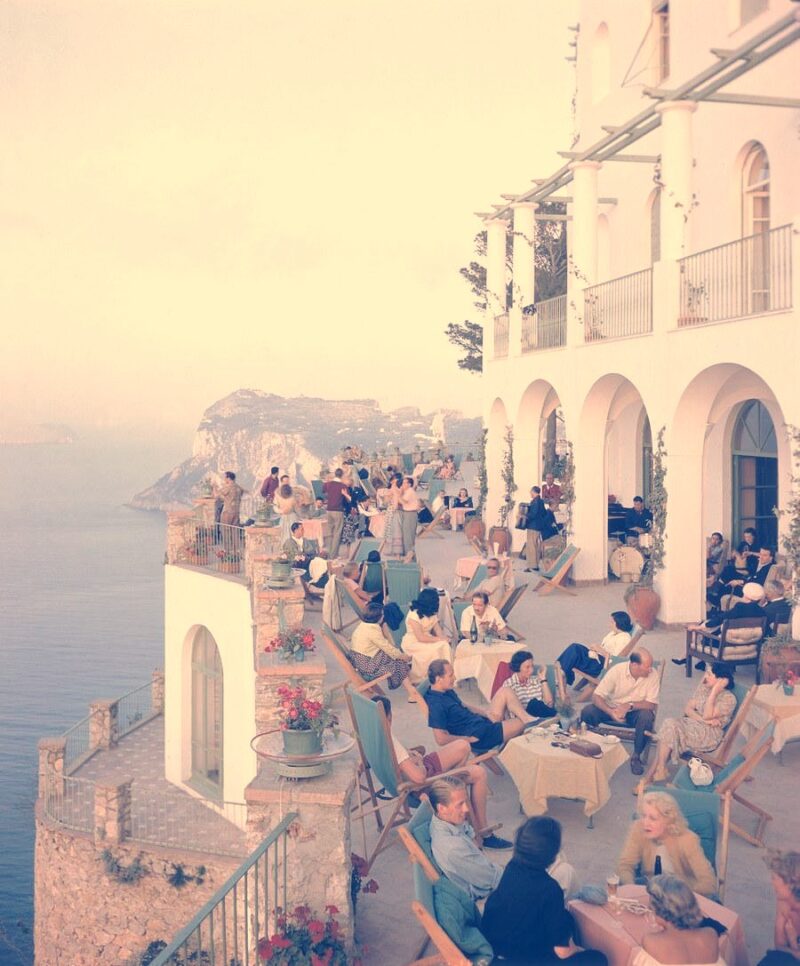“I’ll tell you the story of the wave and the rock. It’s an old story. Older than we are. Listen. Once upon a time there was a wave who loved a rock in the sea, let us say in the Bay of Capri,”
– Erich Maria Remarque, Arch of Triumph: A Novel of a Man Without a Country
and the wave was cobalt blue; the rock, an island, like a dream, green and crystalline. Capri, thirty minutes by boat from Naples,
twenty, from Sorrento. It was the loveliest day, of the summer, the year, the decade, on the loveliest terrace, on top of a cliff dipped into the Mediterranean.
Delicate splashes. White-washed arches, red geraniums, aquamarine beach chairs. Some clouds, but they were cotton candy pink and distant. And on the terrace, people sipped white wine from Campania and chatted.
The photograph does not record their conversations, or the unobtrusive jazz wafting from indoors. Or the, quite obtrusive, cries of sea gulls overhead, or the cigarettes, perfume, sea salt in the air.
Or the bigger picture; the caption that reads 1949, the devastation in Italy. The devastation everywhere, following a war that killed nearly 85 million people around the world. In battle; in labour, refugee, death camps; in cellars, windowless trains; in the streets, in lines for bread rations; in air raids.
The ghostly, ghastly silence that settled with the rubble, those left standing in its midst. 1946, 47…
Once upon a time, there was a wave who loved a rock in the sea. Once upon 1949, there were people who left the mainland behind for Capri.
Capri is not a a rock in the sea; it is a moment in a life, on a lovely day, on a terrace, perched above a cliff. It is not forever, and cannot be, even on the loveliest day; the last ferry departs for Naples at 8:15.
Capri is not an island; it is a stillness, while the waves “foam and swirl, kiss day and night,” embrace, sigh, love and weep and storm and thrash. Undermine. And sink. And wars and famines and plagues and hospitals, cemeteries, newsreels… but to live in a poem is not denial; it is a decision,
to feel every wave beat and batter, and the wars, plagues, famines… and take a ferry on a lovely day to a moment on a terrace,
“to enter into it, hold it, allow it to move you, and fill you, so that it can shape how you see the world,”
to look at the world and see it, love it, cobalt blue and spacious.
